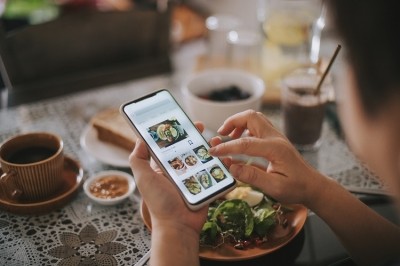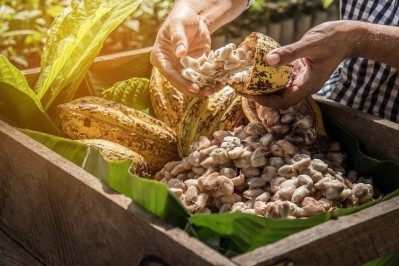Protecting against a ‘dystopian’ future: ‘Coffee, bananas, and chocolate could soon be much harder to buy’
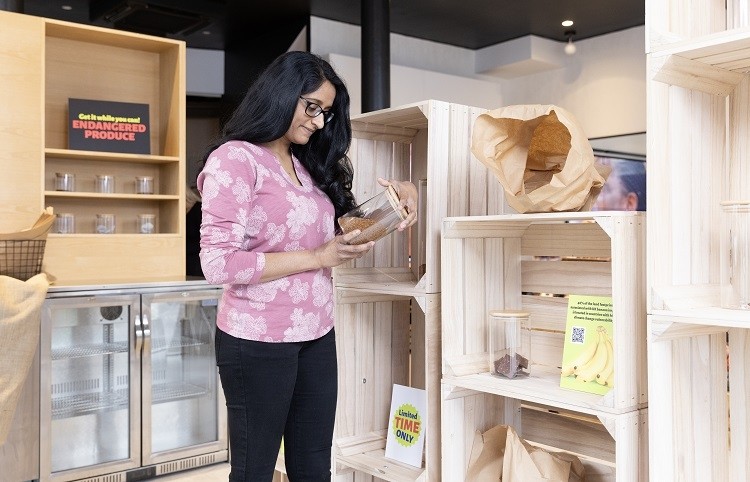
Welcome to the year 2050: a dystopian future with an apocalyptic style supermarket experience. In shopping aisles, where once coffee, chocolate and bananas were available in abundance, consumers are now confronted with empty shelves.
This is what the future may hold if smallholder food producers are not supported, suggests Fairtrade Foundation with ‘The Endangered Aisle’ pop-up in central London: not only is climate change making crops like these harder to grow, but ‘deeply unfair trade’ is pushing growing communities ‘to the brink’. “Coffee, bananas and chocolate could soon be much more difficult to buy,” according to the not-for-profit.
As Fairtrade seeks to recruit more manufacturers and retailers, and encourage more consumers to buy products made with ethically traded ingredients, we look at the challenges and opportunities standing in its way.
‘Farmers know best how to spend the Fairtrade Premium’
Fairtrade sets social, economic, and environmental standards for the companies and farmers involved in the supply chain. For farmers and workers, the standards include protection of workers’ rights and the environment. For companies, they include the payment of the Fairtrade Minimum Price safety net and an additional Fairtrade Premium.
Over and above the Fairtrade price, the Fairtrade Premium is an additional sum of money for workers and farmers to use as they see fit. Cocoa farmers, for example, receive an extra $200 per tonne of cocoa beans they sell. “We believe that farmers know best how to spend this money,” according to Fairtrade. “They are in a much better position to decide what investments will improve the quality of their lives than businesses far away.”
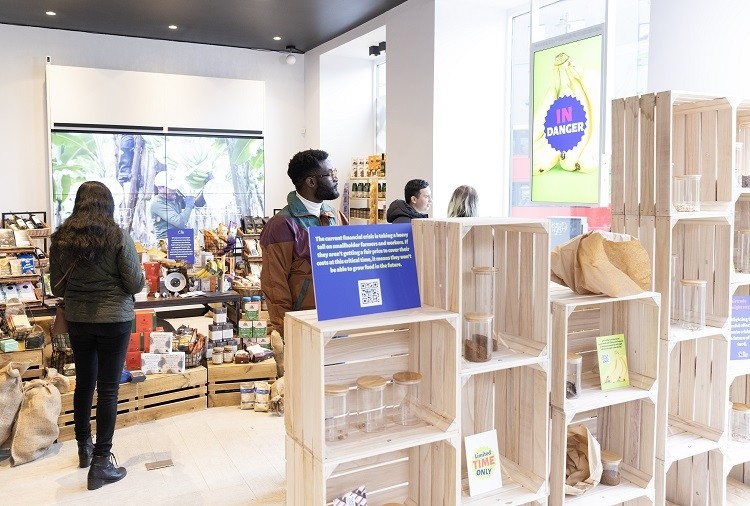
The more manufacturers and retailers that sign up to Fairtrade, the more Fairtrade Premium is distributed to farmers and workers.
The biggest challenge in onboarding industry partners is simply getting in front of decisionmakers, explained Fairtrade Foundation chief executive Michael Gidney. Once manufacturers and retailers understand the business case for supporting fair trade, that’s most of the work done, he suggested.
Making the business case for ethical trade
There are two main reasons brands choose to partner with Fairtrade Foundation, and both present a strong business case, Gidney told FoodNavigator at The Endangered Aisle press briefing yesterday, as part of the non-profit’s Fairtrade Fortnight event.
The first is being able to tell the Fairtrade and producer story to consumers – something Gidney described as the ‘consumer pull’. Carrying the Fairtrade logo and incorporating information about the workers who helped produce ingredients, enables brands to respond to ‘very clear public support’ for fair trade, we were told, “particularly if you’re linking up a product with an origin”.
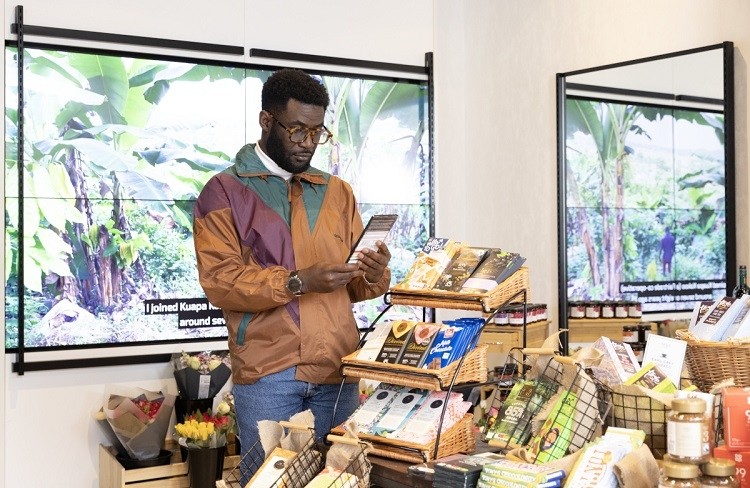
The other business case in supporting Fairtrade lies in security of supply. Recent research conducted by 3Keel on behalf of Fairtrade Foundation suggest that around half (48%) of all bananas grown for UK consumption come from countries with high climate change vulnerability. Close to a quarter (24%) of the UK's total land footprint for annual coffee imports originates from countries considered to be highly vulnerable to the impacts of climate change.
“Unless businesses start to invest in the first mile of supply chains, there may not be a follow-through in the future,” said the Fairtrade Foundation CEO, adding that industry needs to start paying fairly and investing in its supply chains.
Competing in an increasingly crowded ethical label marketplace
Another potential challenge facing Fairtrade is the growing marketplace of ethical labels.
Whereas Fairtrade may have traditionally been the obvious choice for brands, a more crowded ethical labelling marketplace means more competition for the non-profit.
“The ethical labelling marketplace is much more crowded than it used to be,” agreed Fairtrade Foundation’s Gidney. But the chief executive’s glass is half full: “In a way, that’s a good thing. It means that companies are starting to pay attention to the challenges we’ve been [drawing attention to] for 30 years.”
The risk is that the more ethical labels exist, the greater the opportunity for consumer confusion and greenwashing. But in the UK, where the Competition and Markets Authority (CMA) is cracking down on unjustified environmental or ‘green’ claims, Gidney expects the situation will soon change.
The CMA’s Green Claims Code is a ‘really good move’, he told us. “Fairtrade is not concerned. We’re very transparent. But other schemes might struggle.”
Fairtrade is also confident in its position within the ethical labelling market, where in the UK, around 90% of the population recognises the Fairtrade mark and around 80% of the population trust in the non-profit’s actions. “That’s a really long distance ahead of any other certification scheme.”
Being recognisable makes it easy for consumers to make the right choice, Gidney suggested. “Who needs a PhD when you go shopping? You just want to be directed very clearly towards the best option.”
